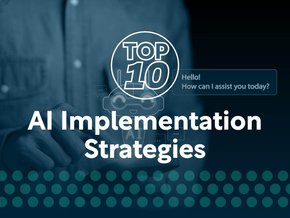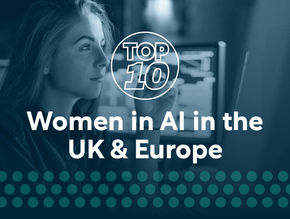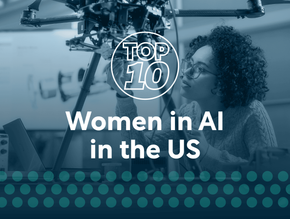
With AI use only expected to continue to rise in 2024, businesses are increasingly looking to transform their strategies to keep pace with digital transformation.
However, as a result of AI developing so fast, there are ever-increasing talent shortages and skills gaps in the sector that need addressing, with businesses scrambling to upskill their staff. In line with this, increasing numbers of universities are now offering courses in artificial intelligence and machine learning (AI/ML) to combat the burgeoning global skills gap.
AI Magazine therefore considers some of the leading universities around the world that offer courses in AI.
10. National University of Singapore
The National University of Singapore (NUS) is a national public research university in Singapore, officially established in 1980. Its AI department works on all of AI, including modelling and representation, reasoning and planning, machine learning and data science, computer vision and natural language processing as well as learning theory - with the mindset that AI can work collaboratively with humans.
NUS has worked towards much AI discovery in recent years, particularly its development of an AI model that can develop thoughts into images and video.
9. University of Southern California
USC’s Center for AI in Society aims to share ideas about how AI can be used to tackle the most difficult societal problems. The university believes that this agenda can best be achieved by a genuine partnership between AI and social work.
As part of its AI research last year (2023), the university invested US$1bn into its curriculum to provide more courses in AI and computing. It is also undergoing a study into AI and data science in line with research into autism spectrum disorder (ASD).
8. The Chinese University of Hong Kong
Ranked as the number one university in Hong Kong, the Chinese University of Hong Kong offers a range of AI and engineering courses. Acknowledging a global skills gap, its programmes are designed to train AI engineers and scientists for essential industries, including biomedical engineering, information and computing technologies and manufacturing and robotics.
In 2023, the university’s researchers contributed to a significant medical study, finding that AI can help doctors to better spot cancerous tumours that might otherwise go undetected during medical examinations like colonoscopies.
7. Tsinghua University
Based in Beijing, China, Tsinghua University offers undergraduate, postgraduate and doctorate degrees in AI. In fact, its Masters of Engineering in AI is one of the most popular master's programmes at the university. The programme integrates the faculty and research platforms of automation, computer science and electronic communication.
With employment also in mind, the university has established a joint training platform with notable leading companies in AI, such as Alibaba, Tencent, SenseTime, Huawei and UBTECH. As a result, students are offered strong support to carry out high-level professional practice.
6. Harvard University
Harvard University offers a range of machine learning, computational thinking and data science courses. It also has plenty of introductory courses into AI, coding and computer science, in online or blended learning environments. In particular, the university’s free programme, Harvard CS50's Introduction to AI with Python, is one of the most popular beginner computer science courses in the world.
In September 2023, the university made the ground-breaking decision to introduce an AI professor on its flagship coding course, CS50, sparking debates over AI use in education.
5. Oxford University
One of the top universities in the United Kingdom, Oxford University’s AI programmes are designed to understand the mechanics behind AI, in addition to its potential and challenges. Experts at Oxford University are currently developing fundamental AI tools, using AI to tackle global challenges and addressing the ethical issues of new technologies.
Researchers from the university’s Department of Computer Science recently set out a new principle to explain how the brain adjusts connections between neurons during learning. This new insight may guide further research on learning in brain networks and may inspire faster and more robust learning algorithms in AI.
4. Carnegie Mellon University
Hailed as the birthplace of AI, Carnegie Mellon University has a longstanding legacy of developing and utilising AI for good. The university has been a leader in AI research since professors Herbert Simon and Allen Newell invented the field in the 1950s.
Carnegie Mellon researchers scientifically build upon each other's work, and research from other disciplines by creating analytical and highly systematic experimental work. In 2023, it created an Artificial Intelligence Security Incident Response Team (AISIRT) to analyse and respond to threats and security incidents involving AI/ML.
3. University of California - Berkeley
A world leader in AI that continues to challenge convention, UC Berkeley is contributing significantly to shape the field of AI, whilst exploring the larger implications of the technology on society.
In 2016, the university founded The Center for Human-Compatible Artificial Intelligence (CHAI) to focus on advanced AI safety methods. Led by Berkeley computer science professor and AI expert Stuart J. Russell, CHAI's approach to AI safety research focuses on value alignment strategies, particularly inverse reinforcement learning, which is when AI learns human values from observing human behaviour.
2. Stanford University
The Stanford Artificial Intelligence Laboratory (SAIL) has been a centre of excellence for Artificial Intelligence research, teaching, theory, and practice since its founding in 1963. In 2023, the university’s researchers were keen to advocate for greater business transparency in AI.
The university also offers a wide range of virtual AI courses that students can take online in their own time, in the hopes to further advance their careers. In addition, its AI professional programme offers a comprehensive introduction to machine learning, as well as opportunities to explore theoretical and project-based learning in natural language processing and understanding.
1. Massachusetts Institute of Technology (MIT)
MIT boasts a hub of research and practice in AI and machine learning. Its MIT Computer Science and Artificial Intelligence Laboratory (CSAIL) is a research institute that was formed in 2003 that undertakes research into AI and generative AI (Gen AI) and robotics, as it considers the continued impact of these new technologies.
The university also undertakes significant research into the world of AI, exploring topics such as cancer detection, neural networks and climate change. Recently, in January 2024, MIT published study findings that suggested that AI would not yet replace jobs.
******
Make sure you check out the latest edition of AI Magazine and also sign up to our global conference series - Tech & AI LIVE 2024
******
AI Magazine is a BizClik brand






